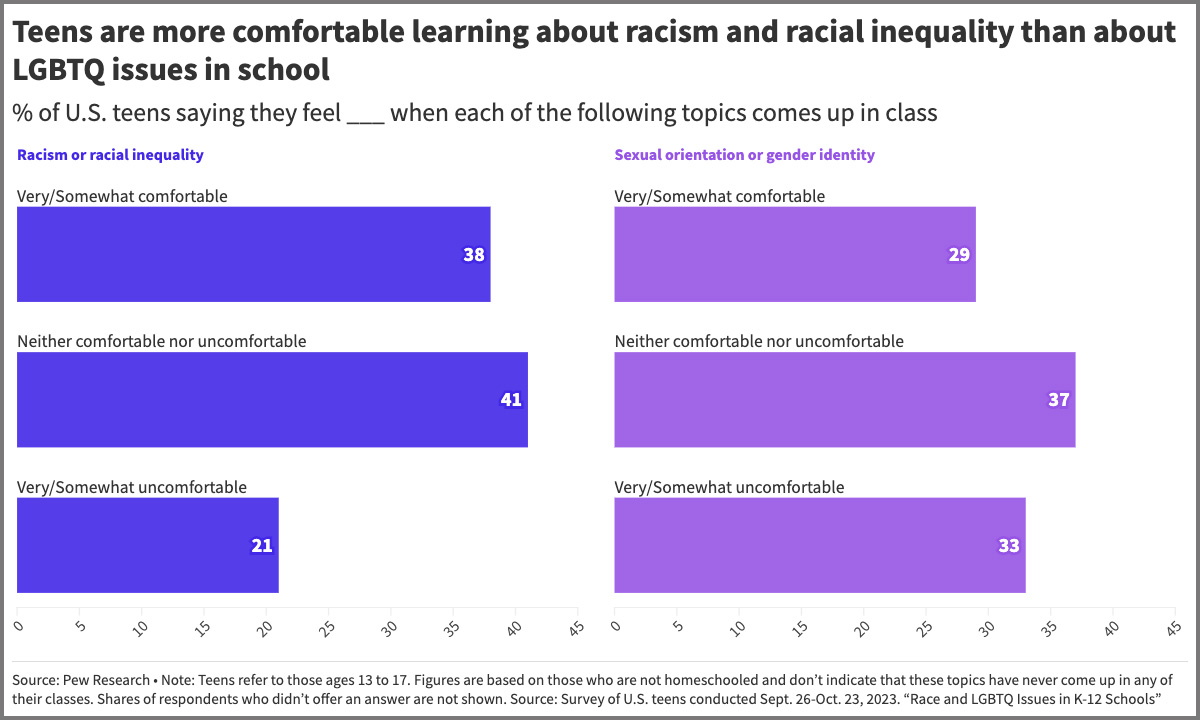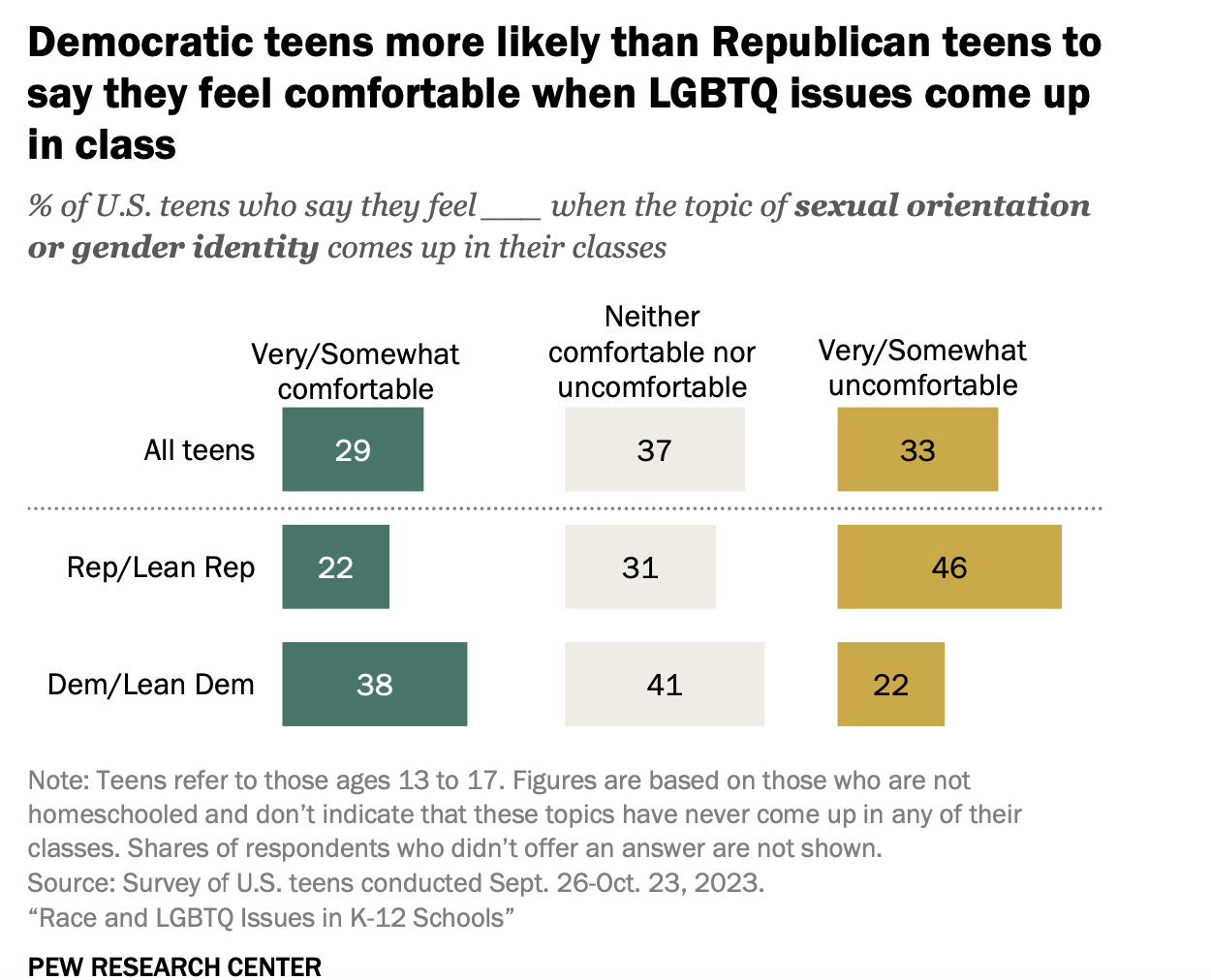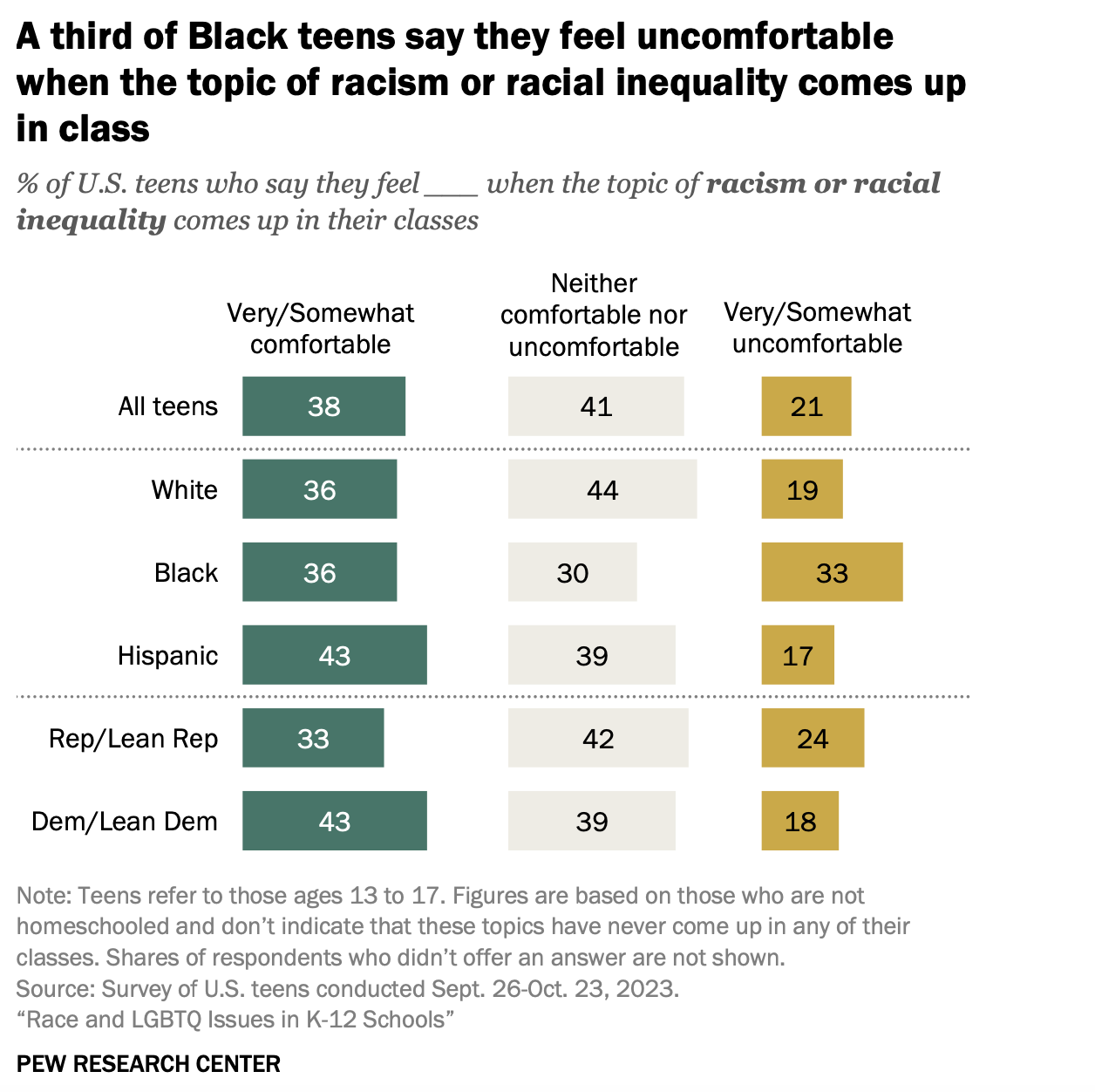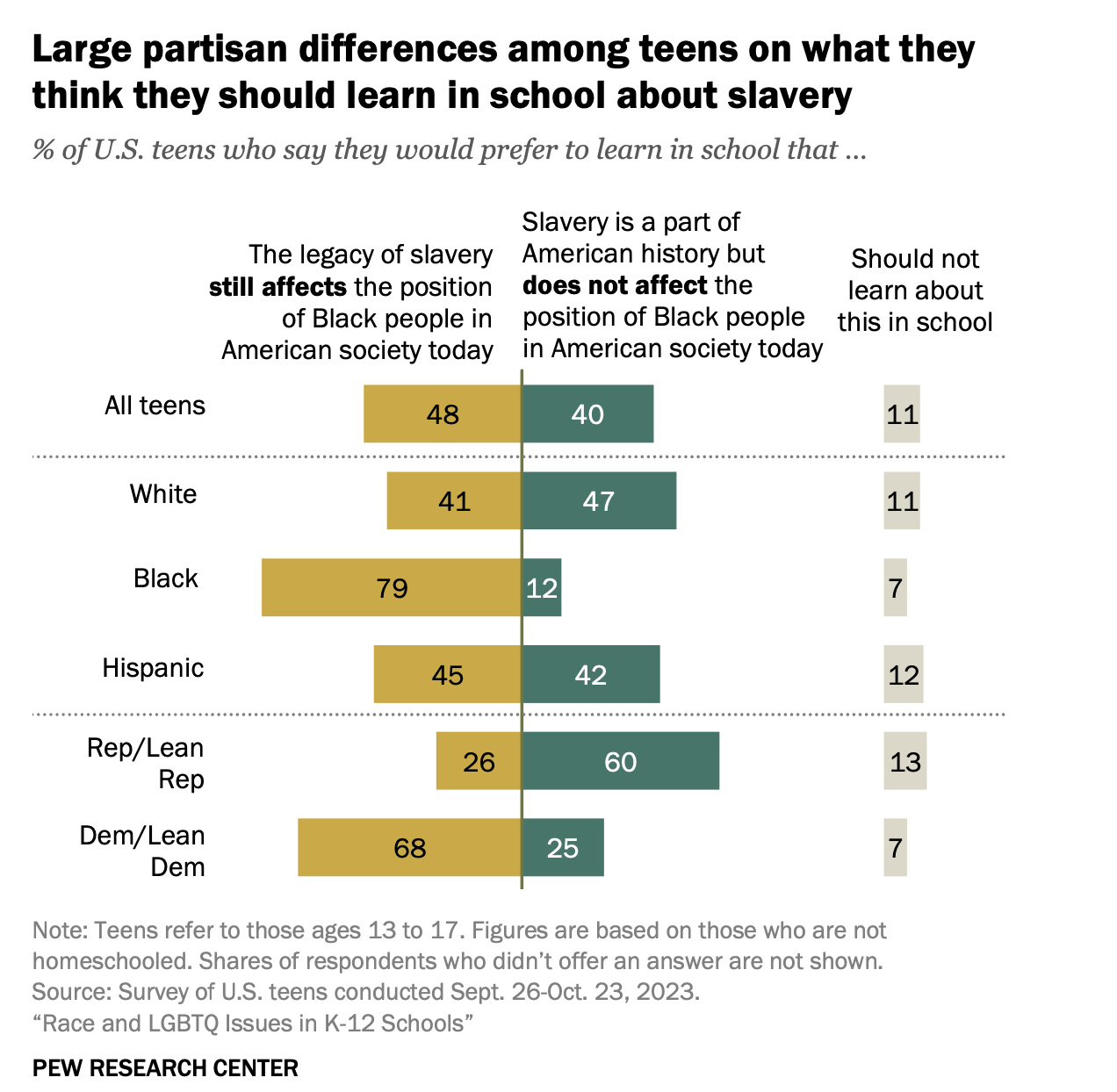Survey: Teens Divided on Teaching Race, Gender Identity — Like Their Parents
New Pew research finds large partisan and demographic gaps in students' comfort with classroom discussions, views on how issues should be framed.

Get stories like this delivered straight to your inbox. Sign up for The 74 Newsletter
U.S. teens are as divided as their parents when it comes to what they think schools should teach about race and gender identity, according to a new report from the Pew Research Center. More say they are comfortable with classroom discussions of racism or racial inequality than with LGBTQ issues.
Almost half of 13- to 17-year-olds surveyed last fall say they would prefer to learn that the legacy of slavery is still felt today, while 40% say they’d prefer to be taught that slavery no longer affects Black Americans. Nearly identical shares of parents surveyed by Pew in 2022 expressed the same preferences.
Eleven percent of teens say topics involving race should not be taught at all, while 8% say racism has not come up in class. Twice as many Black teens as whites and Latinos believe they should learn that slavery’s impact is still being felt.
Almost two-thirds of teachers say students should learn about slavery’s legacy, according to the report. A majority (58%) believe their state officials have too much influence over what is taught, while 71% feel teachers don’t have enough say.
As many parents (31%) would prefer their children learn that gender can be different from sex at birth as want students taught that gender is determined by sex at birth; 37% are opposed to any discussion of gender identity in school. Half of teens say the topic should not be taught, and the remainder are divided on whether students should learn that sex is determined at birth. Fourteen percent say LGBTQ topics have not been mentioned in their classes.
A majority of Republican teens (56%) don’t think they should learn about gender identity in school. Among Democratic teens, 42% would prefer to learn that a person’s gender can differ from their sex assigned at birth, versus 8% of Republicans.

The Pew report is the latest opinion survey to find stronger public support for teaching about race than about LGBTQ people and history. Like the new research, polls conducted by the University of Southern California, Educators for Excellence, American Public Media and others have found similar sharp partisan divides and wide demographic gaps among adults.
The report provides new context about how people who favor instruction on race and gender identity want the topics framed, as well as about students’ comfort levels in classrooms where the discussions take place. Nearly 1,500 teens who are not homeschooled were surveyed.
Teens’ responses about what they believe should be taught and whether they’re uncomfortable when race and LGBTQ topics are raised in class do not indicate what their personal views are, notes Juliana Horowitz, Pew associate director of research. The survey did not probe teens’ school environments or ask about their sexual orientation or gender expression.
Among teens who say the issues have arisen, 38% are comfortable when race comes up in class, versus 21% who are not. Regarding LGBTQ topics, 29% are comfortable while 33% are not. In both categories, the rest of those surveyed reported feeling neutral.

The survey also found racial, ethnic and political divides. One-third of Black teens feel uncomfortable when racism or inequality is raised in class, compared with 19% of white students and 17% of Latinos. Youth who say they lean toward the Democratic Party are more at ease than their Republican peers, with 43% and 33% saying they are somewhat or very comfortable. Almost one fourth of Republican-identified teens express discomfort, versus 18% of Democrats.
The data doesn’t reveal why students are uncomfortable, says Horowitz: “We don’t have information about the school environment that they’re in. For example, we don’t know if this is more the case among Black teens who are in class with mostly teens who are white or who are not Black, or if this is across the board.”
Past Pew research suggests people are most comfortable talking about race with those who share their background, she adds.
While 79% of Black teens would prefer to learn that the legacy of slavery is still felt, as would 68% of Democratic youth, just 41% of white teens and 45% of Latinos do. A majority (60%) of Republican teens would prefer to learn that slavery no longer has an impact on Black people.

Pew also asked adults whether they believe parents should be able to opt their children out of learning about race and LGBTQ issues. More than 80% of white Democrats say parents should not be allowed to remove children from lessons involving race, compared with 65% and 61% of Black and Latino parents. White Democrats also oppose allowing parents to opt out of instruction on LGBTQ topics in larger numbers than other groups, with 60% saying no, versus 42% of Latinos and 34% Blacks. Four in five Republicans say instruction involving LGBTQ people should be optional.
Get stories like these delivered straight to your inbox. Sign up for The 74 Newsletter

;)
